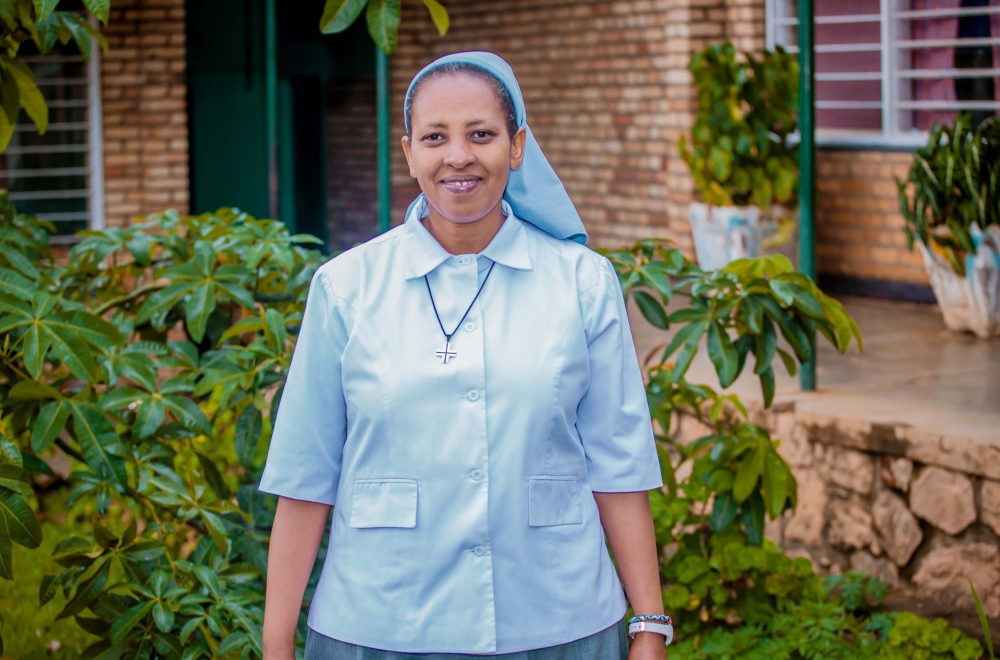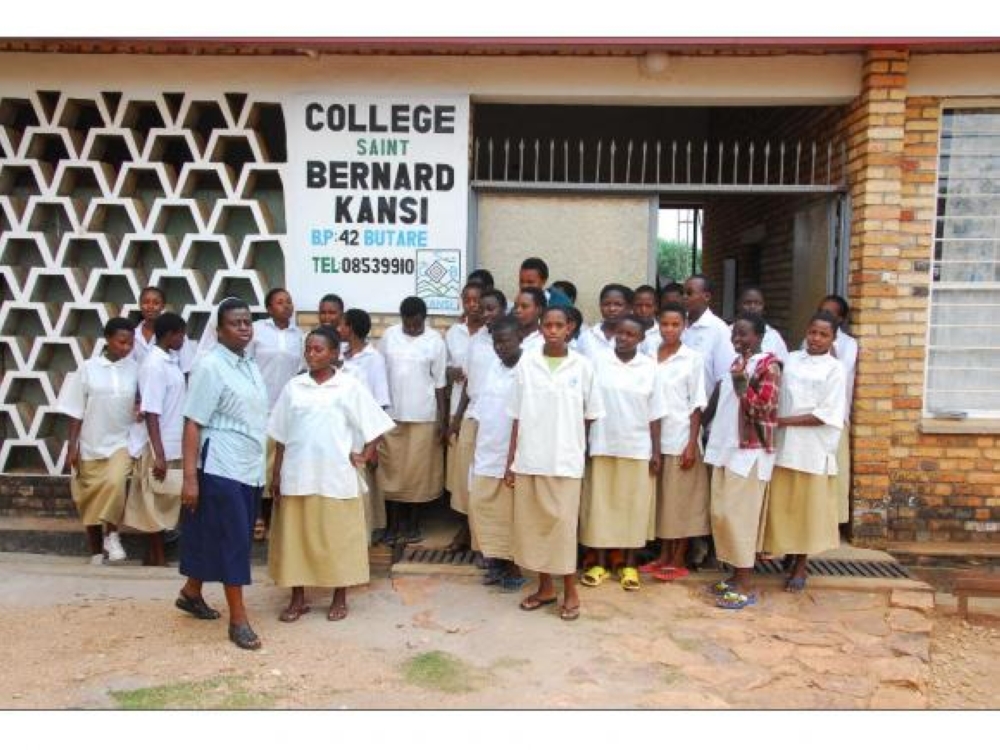

Gender-based violence (GBV) is a pervasive issue that can have devastating consequences for victims, particularly young people. In Rwanda, schools like College St. Bernard Kansi are taking a stand to address this problem. By prioritising the emotional and psychological well-being of students, the school is working to create a safer and more supportive learning environment.
"If the government entrusts you with the country’s children, it is your responsibility to care for them. You have no right to neglect their needs,” says Soeur Immaculee Uwamariya, the Headmistress of College St. Bernard Kansi in Gisagara District.
She emphasizes that educators, regardless of their personal beliefs or motivations, must recognise the trust placed in them by the nation. This trust extends beyond academics to addressing the emotional and psychological challenges students bring with them, especially those stemming from GBV at home.
ALSO READ: 16 Days of Activism: It is our collective duty to fight GBV
Uwamariya argues that educators play a critical role in the growth and development of students, particularly those in boarding schools who spend most of the year under their care.


"Students affected by GBV often struggle with mental health issues, which can hinder academic performance or even drive them to despair,” she warns, stressing that educators must actively engage with such students to mitigate the adverse effects of their home environments.
Tackling GBV-related challenges among students
According to Uwamariya, identifying students impacted by GBV is the first step in offering support. This, she says, can be observed through behavioral changes. "When a student exhibits aggressive or unusual behavior, it is a cry for help.”
She recounts the case of an O-Level student who vandalized a school water tank. Upon calm inquiry, he revealed his anger stemmed from his parents’ conflict, which led to his father leaving home and his mother introducing new male partners into the household. The boy deliberately caused damage, hoping it would compel his mother to bear the financial consequences.
In another instance, a previously well-adjusted student began refusing food and isolating herself. When approached, she confided in Uwamariya that she was distressed about her mother’s plan to remarry following an abusive relationship with her father.
Her fears centered on the potential impact on her siblings and uncertainties about the intentions of her mother’s new partner.
Students often open up to school staff, approach the headmistress directly, or are identified by their peers, matrons, or patrons.
ALSO READ: Where and how to seek help in case of gender-based violence
Occasionally, concerned parents alert the school about issues affecting their children. "This academic year alone, at least ten parents have reached out to me about their children’s mental health,” Uwamariya reveals.
Once identified, affected students are provided with counseling. Uwamariya praises the school’s psychologist, who conducts mental health sessions and provides individualised support.
Counselor Eric Ntakirutimana underscores the importance of understanding the underlying causes of poor academic performance, cautioning against quick judgments.
"Family issues can be deeply distracting for students, impacting their ability to focus and excel in their studies,” he explains.
ALSO READ: Officials root for positive parenting to tackle GBV in families
Since the start of the 2024-2025 academic year, St. Bernard has identified five cases of students with mental health challenges, most linked to domestic GBV. With timely intervention, many have shown improvement. In severe cases, the school collaborates with a nearby hospital for specialized mental health support.
Financial difficulties resulting from parental neglect due to GBV are also addressed through the school’s ‘Caritas St. Bernard’ initiative. This fund, supported by staff, parents, and students, provides essentials such as school materials, sanitary products, and financial aid.
Additionally, the school facilitates family discussions when necessary, fostering dialogue between students and their parents to resolve conflicts and ensure the child’s well-being.
The school also conducts end-of-term discussions to prepare students for potential challenges at home. Uwamariya explains, "Some students return to find their families torn apart or their homes gone. We equip them with coping strategies to remain resilient,”
ALSO READ: Yes, we need to invest in GBV prevention
Recommendations and broader responsibilities
To better support students, Uwamariya advocates for government-led training programmes to empower school staff in handling mental health and family-related issues.
She also calls for psychologists to be placed in all schools, noting that "students are often more comfortable confiding in a dedicated professional than in their teachers or headmasters,”
Parents, she argues, must also be educated about responsible parenting. They should avoid involving children in their disputes and shield them from harmful situations.
"When a father locks his children and their mother out of the house during a quarrel, it is the government’s duty to intervene as a third party,” Uwamariya insists. She highlights cases where one parent prohibits contact with the other following separation, depriving children of essential parental support.
The community, too, has a crucial role in addressing GBV. Uwamariya calls for proactive measures to identify and support families in crisis. She notes that village-level family gatherings are often attended only by women, limiting the scope for meaningful resolution. "Both parents need to be involved to fulfill their responsibilities,” she asserts.
Reflecting on traditional practices where community members collectively nurtured children, Uwamariya urges a return to shared responsibility. "A child from a GBV-affected family can influence others in ways we might not foresee. Everyone must play a part in safeguarding all children,” she says.
ALSO READ: Addressing technology-facilitated gender-based violence in Rwanda
Progress and continued efforts
Uwamariya commends the government’s proactive initiatives, including training programmes by the Rwanda Biomedical Centre (RBC) in 2022 and 2023.
These programmes equipped matrons and disciplinary teachers with the skills to address trauma and mental health challenges among students. Such efforts resonate with the ongoing 16 Days of Activism campaign, observed from November 25 to December 10, under the theme "All for GBV-Free Families.”
St. Bernard Kansi secondary school serves 750 students with the support of 46 teachers and an administrative team of six.


